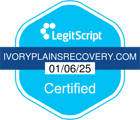Raising another human being is a courageous choice, but that doesn’t mean it’s without challenges. If you’re maintaining sobriety as well, even more courage is required. Fortunately, there are numerous support resources that can add to your inspiration, provide valuable education, and help you become a better parent in recovery.
It’s Okay to Laugh
Comedian Jerry Seinfeld once said, “A 2-year-old is kind of like having a blender, but you don’t have a top for it.” Actress Kristin Bell noted, “In the age of social media, when you can edit your life in beautiful pictures, it’s important to remind moms that all of us are wearing yogurt and all of our hands smell like urine.” Screenwriter and author Nora Ephron once quipped, “When your children are teenagers, it’s important to have a dog so that someone in the house is happy to see you.”
Humor is just one of many tools that help with parenting. For example:
- Results from a Penn State University study, led by Benjamin Levi, a professor of pediatrics and humanities at Penn State College of Medicine, discovered that “humor can teach people cognitive flexibility, relieve stress, and promote creative problem solving and resilience.”
- In an interview with The Washington Post, Shannon Bennett, assistant professor of psychology at Weill Cornell Medicine, stated “just because parenting is a serious business is no reason to be serious about it all the time. Taking time for a moment of levity with your child during your daily routine means you’re making it a priority. You’re saying, ‘We enjoy you. You’re important. You’re loved.’”
- The Center for Parenting Education (CPE) also notes that “Laughter and humor can be very healing, calming and satisfying parts of life. They can break a tense moment, raise people’s self-esteem, challenge you intellectually, and increase intimacy between people.”
However, there are certain boundaries to respect with a child compared to the adult jokes parents share between themselves. “Your upbringing, cultural background, gender, religion, and socioeconomic status will influence your reaction to joking,” CPE says. “But use caution with humor so that your words and laughter are not misconstrued and damage your child’s developing self-esteem.” Some of the negative forms of humor not appropriate for children include disparaging laughter, teasing, and sarcasm.
Do Your Recovery Work
As you move through aspects of rediscovering sobriety, it might be necessary to have open but age-appropriate conversations with your kids to give you a chance to take ownership of your condition and past actions. If you’re new to recovery, offer authentic apologies, create safe opportunities for your children to express their emotions, and talk about how the family will work together on healthier behaviors.
Also, encourage your children to:
- Attend 12-Step family support groups.
- Visit the library to check out books about substance use disorder and alcohol use disorder.
- Be open to understanding and healing from adverse childhood experiences.
This open line of communication extends into other vital areas of family life, too. Most importantly, as they see you striving to be healthy and focus on building quality relationships, they’ll start to model this behavior.
Turn to the Experts to be a Better Parent in Recovery
We’re not born knowing how to become parents, and if our own home life wasn’t the best, we often strive to simply be the parents we wished we had. While that’s a fine aspiration, choosing to get more knowledge and support makes it easier.
Iowa State University Child Care and Family Services recommends connections and education on parenting that you may find valuable. Here are just a few resources to try.
- AnswerLine
For more than 40 years, AnswerLine has offered information and resources for Iowa consumers with home and family questions. Professional family and consumer scientists answer questions about child development, home environment, food safety, and more.
- Child Mind Institute: Family Resource Center
CMI provides information to help you support children who are struggling with behavior, learning, or mental health challenges.
- Just in Time Parenting
This is a free parenting newsletter delivered by email and specific to your child’s age and needs. It has information and strategies identified by researchers as those most crucial to helping you and your children thrive, such as promoting healthy growth and development, preparing children for school success, reinforcing positive parenting behaviors, and affirming healthy interpersonal and family relationships.
Other sites that might be helpful include:
- Unicef Parenting, which offers guidance on how to relieve stress, ways to handle big conversations, and more.
- The Child Development Institute, which features comprehensive information on positive parenting skills, points for constructive discipline, and other vital resources.
- If you’re more detail-oriented, these worksheets from TherapistAid and PsychePoint that cover various topics.
Build a Better Life at Ivory Plains
At our addiction rehabilitation program in Adair, Iowa, our board-certified professionals recognize that you’re more than a diagnosis and a series of symptoms. Our goal is to provide you with all the tools necessary to build a full, rewarding life in recovery, especially when it involves meaningful relationships. If you or a loved one is ready for this type of quality care, call our admissions department today.








